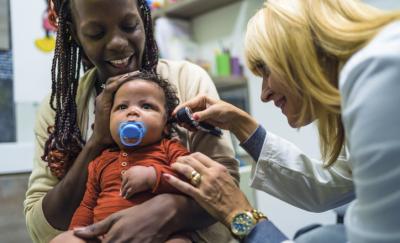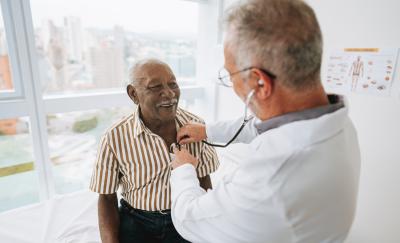Authors
Sean McClellan and Katharine Witgert, Abt Global; Jeanette Renaud, PhD; Kelli DePriest; Lucia Rojas-Smith, RTI; Shannon O'Connor, Kate Abowd Johnson, and Natalia Barolin, CMS; Laura M. Gottlieb and Emilia H. De Marchis, UCSF; and Susan Haber
For more than 10 years, studies have shown that historically underserved populations have worse physical and mental health status and make more trips to emergency departments. In 2017, the Centers for Medicare & Medicaid Services launched the Accountable Health Communities Model, a randomized control trial to see if addressing health-related social needs (HRSNs)—like food insecurity and housing instability—can lower healthcare costs and improve patient outcomes. Participants in the intervention group received a list of resources tailored to the beneficiary’s HRSNs and were offered facilitated connections to social services (“navigation”); participants in the control group received a resource list only. Abt’s Sean McClellan and Katharine Witgert were part of a team that surveyed and interviewed a subset of the Model’s beneficiaries who had one or more HRSNs and at least two emergency department visits in the previous 12 months. The goal was to determine how social services were used and whether those services addressed their needs.
While Model sites successfully identified beneficiaries with HRSNs, surveys indicated that navigation did not significantly increase the rate of social service provider connections or the resolution of needs. Interviews with Model staff, social service providers, and beneficiaries indicated there were challenges connecting beneficiaries to social service organizations. In addition, once connections were made, beneficiaries sometimes faced complex enrollment requirements for social services, and resources often weren’t sufficient to resolve HRSNs. Ultimately, for navigation to be successful, investments in additional resources to assist beneficiaries in their communities may be required (e.g., reducing wait times for housing assistance for those who qualify). Given the implications for improving health outcomes, the authors note, additional research is warranted.



